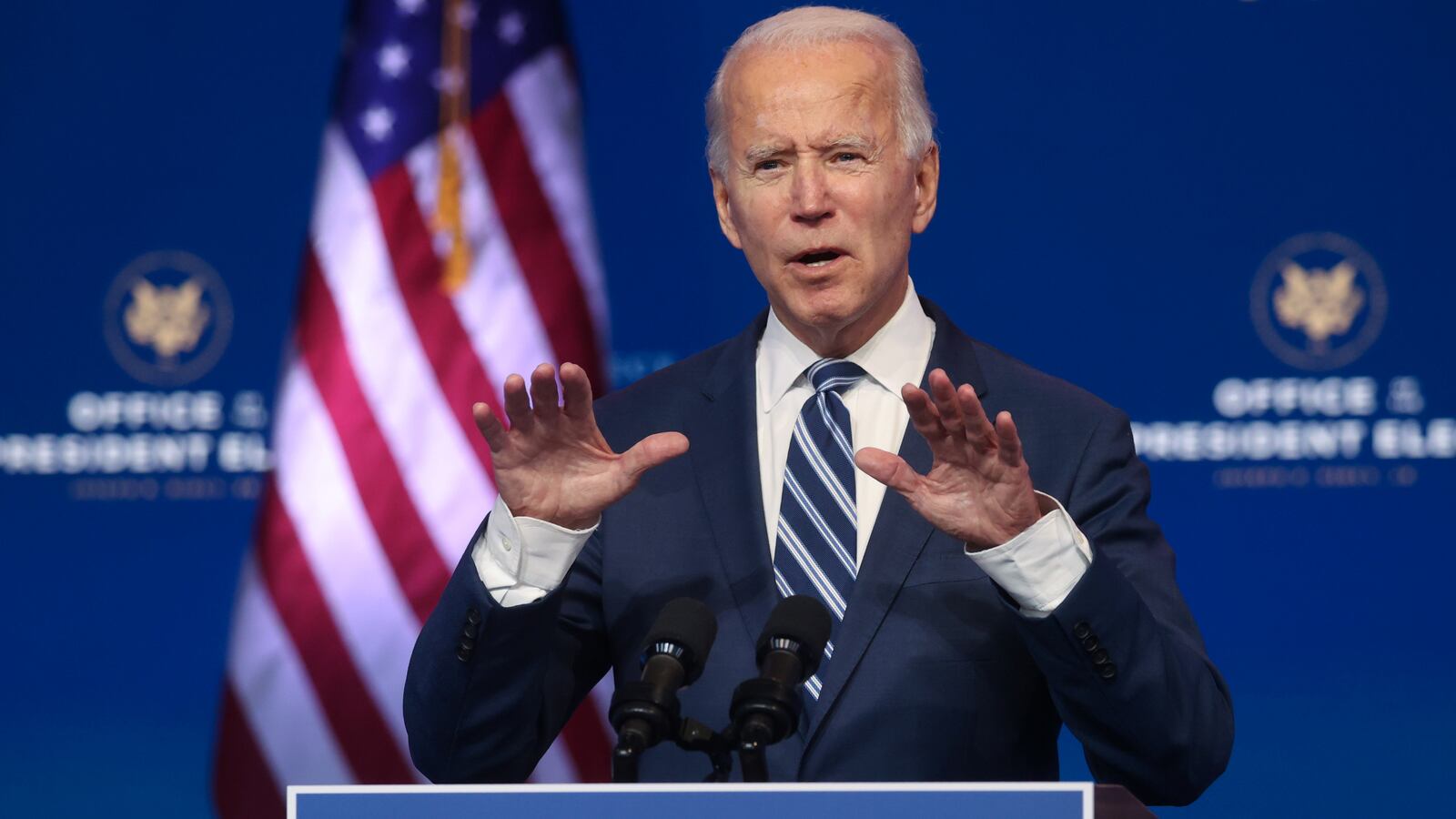President-elect Joe Biden is preparing to ramp up his new administration. But who, exactly, is providing him with the funds to do so remains a mystery.
The Trump administration has so far refused to provide standard sources of funding for the transition in light of the president’s dubious claims of a stolen election and ongoing litigation regarding supposed voter fraud in key electoral contests. That’s left Biden’s transition team to rely entirely on funds provided by private donors.
But Biden’s team is declining to provide details on the precise sources of those funds—or even how many donors its presidential transition entity has, or the total amount they’ve given to date. Efforts to get that data or any other details were politely declined by a Biden spokesperson on Tuesday.
That information will eventually be disclosed after Biden’s inauguration in January. But for now, the presidential transition is being underwritten entirely by political supporters who’ve chipped in to support the effort since the summer, and who remain largely anonymous. The transition team will have a dramatic impact on the makeup of the Biden administration right out of the gate—not just who staffs key federal agencies, but the policy proposals that they’ll work to put into effect starting on January 21.
That gives the people working to craft that transition, and the people providing the funds to do so, a potentially huge impact on the political direction of the nation going forward. But to the extent any special interests are attempting to influence the process through financial contributions, those contributions remain, for now, shrouded from public view.
According to documents filed with state charity regulators in Florida and North Carolina in August, the Biden transition, which operates under the name PT Fund Inc., said it expected to raise about $5.7 million this year, though recent reporting suggests it’s now on track to far exceed that total. In charity registration filings, the PT Fund said it anticipated financial and logistical cooperation from the General Services Administration, the agency that oversees presidential transitions. But that agency has so far refused to cooperate with the Biden transition team.
The PT Fund, a 501(c)(4) nonprofit formed in Delaware in May, told state charity regulators that it planned to spend the money it raised on office space, fundraising, and, primarily, staff and executive compensation. And according to information released by the Biden transition on Tuesday, those funds are currently paying the salaries of nine staffers on what the transition is calling its “agency review teams.” Those teams are “responsible for understanding the operations of each agency, ensuring a smooth transfer of power, and preparing for President-elect Biden and Vice President-elect Harris and their cabinet to hit the ground running on Day One,” according to the transition team’s website.
Those nine staffers represent a small sliver of the hundreds of people appointed to those transition “beachhead” teams, the vast majority of whom are serving on a volunteer basis, according to a list that Biden’s team released on Tuesday. But some of the transition’s paid staffers are in some significant positions of influence. Don Graves, an executive vice president at KeyBank, is listed as the team lead for Biden’s Treasury Department beachhead team, and other paid members of the transition are filling out teams assigned to the Labor Department, the Environmental Protection Agency, the Federal Reserve, and the White House National Security Council.
Like Biden’s campaign, the PT Fund has pledged not to accept contributions from corporations, corporate PACs, lobbyists, or registered foreign agents. But beyond that, little is known about its financial backers. While it hasn’t disclosed any of its donors, Federal Election Commission records show that it received contributions from the congressional campaigns of Rep. Don Beyer (D-VA) and Dan Baer, a former senior State Department official in the Obama administration.
The PT Fund certified in filings with the Internal Revenue Service that it would not engage in any political activity. Instead, it said it would primarily focus on general administrative expenses, interviewing and evaluating candidates for federal posts, and developing policies for the new administration.
The group, it told the IRS, is “helping to ensure that the new administration’s appointees are ready to manage the federal government from the start of Biden’s term in office.”







